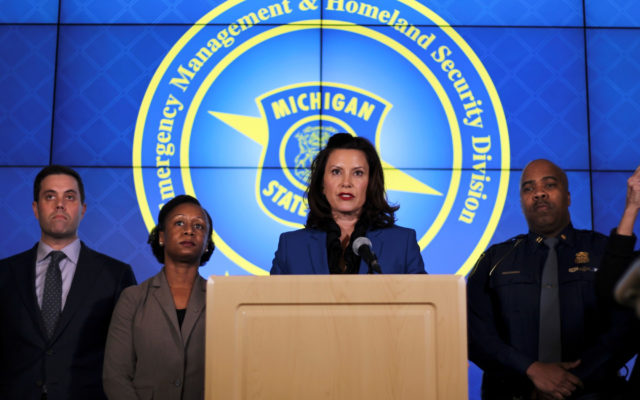State Recommends Community Mitigation Strategies to Help Slow COVID-19

The following statement is from the Michigan Executive Office of the Governor:
LANSING, MICH. – Following the announcement of the state’s first presumptive positive cases of COVID-19, Gov. Gretchen Whitmer and the Michigan Department of Health and Human Services (MDHHS) are providing recommendations designed to help prevent the spread of the virus.
“I urge all Michiganders to take these recommendations seriously and to share them with their friends, families, and coworkers,” said Governor Whitmer. “It’s on all of us to be safe and be smart for ourselves, our loved ones, our coworkers, and the public at large. We are encouraging schools, universities, businesses, and other organizations to use their best judgment about what steps are most appropriate to keep people safe and slow the spread of the disease.”
Community mitigation strategies are designed to be implemented at the individual, organizational, and community levels. They apply to businesses, workplaces, schools, community organizations, health care institutions, and individuals of all ages, backgrounds, and health profiles; everyone has an important role to play. These strategies provide essential protections to individuals at risk of severe illness and to health care and other critical infrastructure workforces.
“Michiganders have been preparing for COVID-19 for weeks, including by taking basic measures such as washing their hands often, covering their mouths and noses when coughing or sneezing, and staying home when they are sick,” said Dr. Joneigh Khaldun, chief medical executive and chief deputy for health. “However, Michigan must take further action to avoid a rapid increase of cases in the state. Community mitigation strategies are crucial to slowing the transmission of the virus in Michigan, particularly before a vaccine or treatment becomes available.”
To slow the spread of COVID-19 in Michigan, following are some of the mitigation strategies are being recommended. Additional recommendations are included in the attached document.
- Learn about the signs and symptoms of COVID-19, which include fever, cough and difficulty breathing.
- STAY HOME WHEN YOU ARE SICK, and Individuals at risk of severe illness should consider staying at home to avoid others who are sick.
- Regularly clean and disinfect frequently touched surfaces, such as doorknobs, keyboards, cell phones and light switches.
- Communicate and reinforce best practices for washing hands and covering coughs and sneezes.
- Be sure to maintain a supply of medications, food, and other essentials in your house.
- Cancel or postpone large gatherings, conferences and sporting events (e.g. events with over 100 people).
- Reduce in-person gatherings and activities, especially for organizations with individuals at risk of severe illness. Consider offering video or audio of events.
- Consider tele-learning or tele-work opportunities, where feasible.
- Limit non-essential work travel.
- If you care for a loved one living in a care facility, monitor the situation, ask about the health of the other residents frequently, and know the protocol if there is an outbreak.
- Limit visitors at hospitals and other facilities to only those who are absolutely necessary and implement screening of visitors for temperature and respiratory symptoms.
Information about this outbreak is changing rapidly. The latest information is available at Michigan.gov/Coronavirus and CDC.gov/Coronavirus.
To view the full list of recommendations, click the link below:



